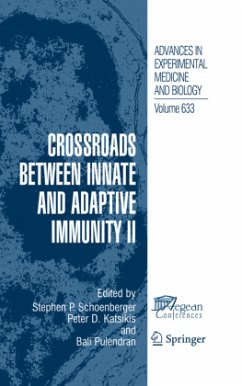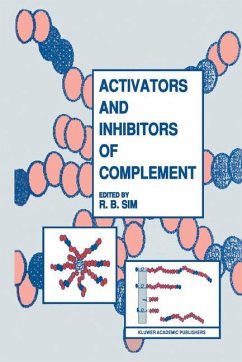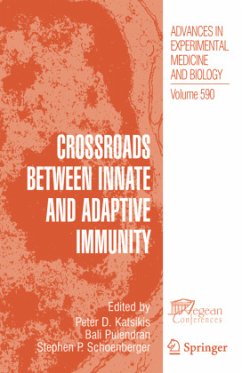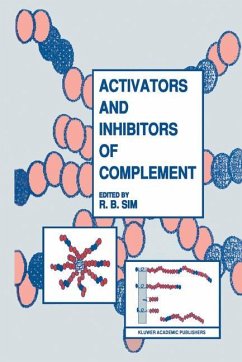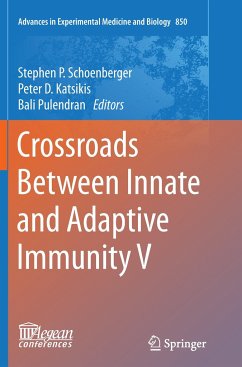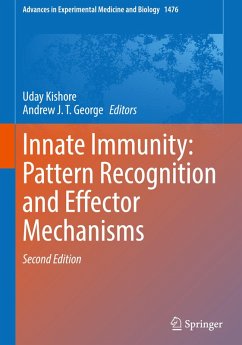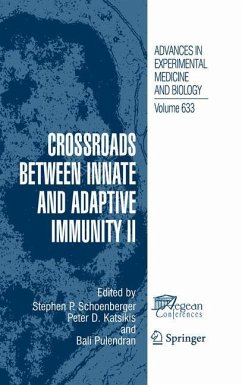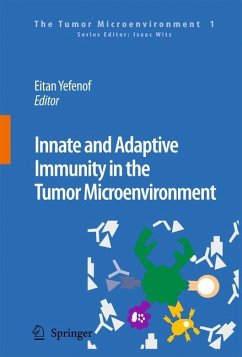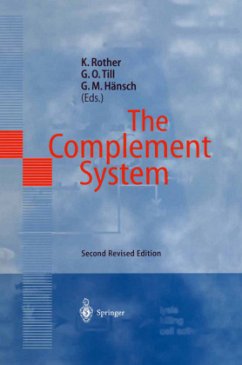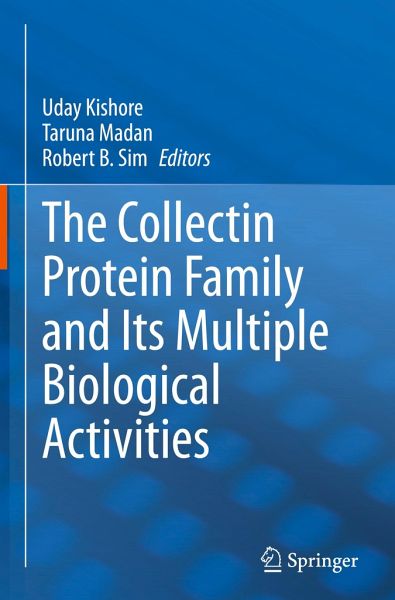
The Collectin Protein Family and Its Multiple Biological Activities

PAYBACK Punkte
38 °P sammeln!
The topic of this book, Collectins, is a family of proteins whose major function is in innate immunity, where Collectins act as pattern recognition receptors (PRRs). In general they recognize targets such as microbial surfaces and apoptotic cells, and once bound to a target, Collectins promote the clearance of microorganisms and damaged host tissue. New cell-surface proteins and glycoproteins, which act as Collectin receptors, are currently being identified. Some Collectins, particularly MBL, activate the complement system, which enhances the ability of antibodies to fight pathogens, via three...
The topic of this book, Collectins, is a family of proteins whose major function is in innate immunity, where Collectins act as pattern recognition receptors (PRRs). In general they recognize targets such as microbial surfaces and apoptotic cells, and once bound to a target, Collectins promote the clearance of microorganisms and damaged host tissue. New cell-surface proteins and glycoproteins, which act as Collectin receptors, are currently being identified. Some Collectins, particularly MBL, activate the complement system, which enhances the ability of antibodies to fight pathogens, via three MBL-associated proteases, the MASPs. Additionally, recent research has begun to show wider-ranging activities of Collectins, such as:
· Their role in metabolism, and therefore their involvement in lifestyle diseases such as obesity and cardiovascular disease.
· Their ability to modulate the adaptive immune response, as well as to recognize and trigger apoptosis of cancer cells, which makes them effective in the annihilation of cancer cells with multiple mutations.
· The regulation of their expression by gonadal steroid hormones implicates them with critical roles in both male and female fertility.
· Altered levels of Collectins have been associated with various autoimmune diseases.
This book brings together current knowledge of the structure, functions and biological activities of Collectins, to describe their integral role in human health.
· Their role in metabolism, and therefore their involvement in lifestyle diseases such as obesity and cardiovascular disease.
· Their ability to modulate the adaptive immune response, as well as to recognize and trigger apoptosis of cancer cells, which makes them effective in the annihilation of cancer cells with multiple mutations.
· The regulation of their expression by gonadal steroid hormones implicates them with critical roles in both male and female fertility.
· Altered levels of Collectins have been associated with various autoimmune diseases.
This book brings together current knowledge of the structure, functions and biological activities of Collectins, to describe their integral role in human health.





